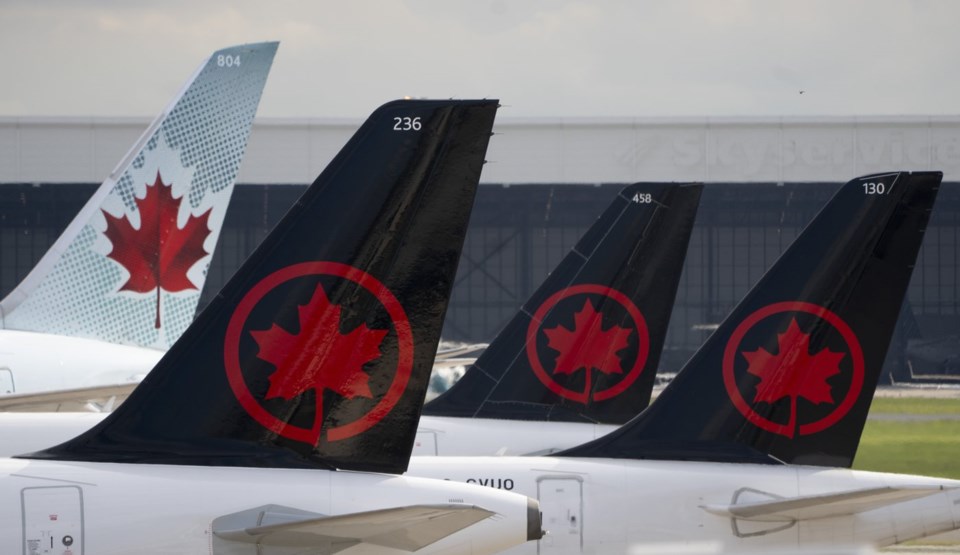Air Canada's stock closed up almost 14 per cent after it announced a share buyback program, an earnings beat and a higher earnings outlook.
The positives come despite a disruptive third quarter that saw pilot contract negotiations come down to the wire, creating uncertainty for travellers and helping push down both revenue and passenger volumes.
The new contract with pilots, which includes a cumulative 42 per cent wage hike over four years, is expected to put pressure on expenses next year, but chief executive Michael Rousseau said it was an achievement to reach a deal without having to go through a pilot strike.
"I am proud that we concluded a mutually beneficial agreement without significant disruption to customers and with a contained revenue impact," he said on an earnings call Friday.
The potential for travel disruptions offset a longer-term growth trend to see passenger volumes fall 0.1 per cent, while revenue was down four per cent to $6.11 billion.
"We saw multiple weeks of softer booking volumes as some customers postponed or cancelled their itineraries while others chose to fly with other carriers," said Mark Galardo, executive vice-president of revenue and network planning, on the call.
Profits were also impacted by competitive market pressure, along with lower demand to France because of the Olympics, but Galardo said overall the airline saw sustained strong international demand in the quarter.
The airline reported a profit of $2.04 billion, up from $1.25 billion in the same quarter last year, though that was significantly boosted by a one-time $1.15 billion income tax recovery in the quarter.
On an adjusted basis, Air Canada says it earned $2.57 per diluted share, down from an adjusted profit of $3.41 per diluted share a year earlier.
The adjusted profit was well above the $1.58 per diluted share expected by analysts, according to LSEG Data & Analytics.
The profit beat came in above consensus on fuel and costs, noted RBC analyst James McGarragle.
The airline has also slightly boosted its earnings expectations for 2024, with adjusted earnings before interest, taxes, depreciation and amortization expected to total about $3.5 billion, up from earlier guidance for between $3.1 billion and $3.4 billion.
Air Canada also announced a share buyback program covering about 10 per cent of outstanding shares, which it said was to counter some of the share dilution the airline went through during the pandemic.
The combination of news helped push up Air Canada's stock by $2.64, or 13.99 per cent, to $21.51 on the Toronto Stock Exchange.
In its outlook, the airline said it now expects its capacity measured by available seat miles for 2024 to be up about five per cent from 2023 compared with earlier expectations for growth of 5.5 to 6.5 per cent.
Galardo said the reduction was because of a combination of supply chain pressures, aircraft availability and geopolitical pressures, while the airline will be watching to see whether other factors push down demand.
"Although demand is strong, we'll be watching the effects from rising hotel costs and foreign exchange which may impact the coming winter season."
Air Canada also said it now expects its adjusted cost per available seat mile to be up about two per cent from 2023, compared with earlier expectations for growth of 2.5 to 3.5 per cent.
This report by The 91原创 Press was first published Nov. 1, 2024.
Companies in this story: (TSX:AC)
Ian Bickis, The 91原创 Press



